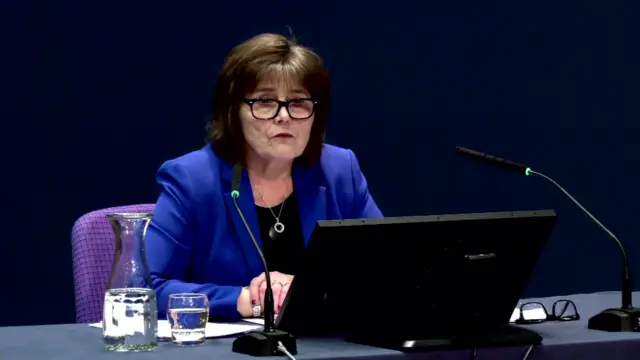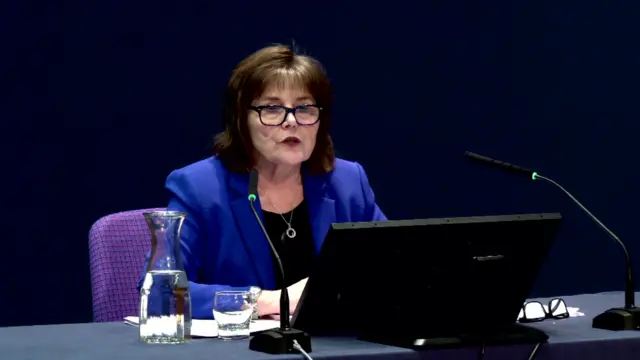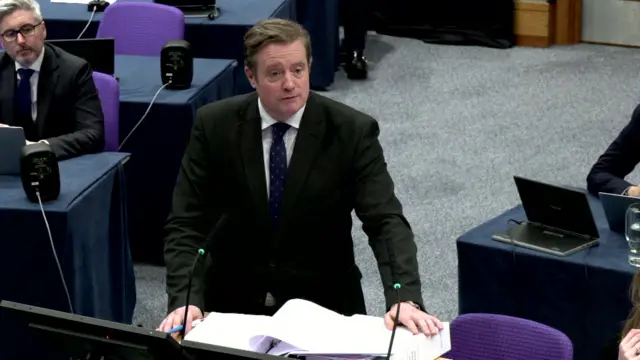'Contract-tracing helped after Nike conference'published at 15:57 GMT 29 January 2024
Freeman discusses the Covid outbreak following a conference in Edinburgh by sportswear firm Nike - an incident that's already come up once this afternoon.
She says it was contact-tracing which prevented the virus from spreading further than the people who were infected at that event. One single case led to 38 people getting the virus, out of 71 delegates.





